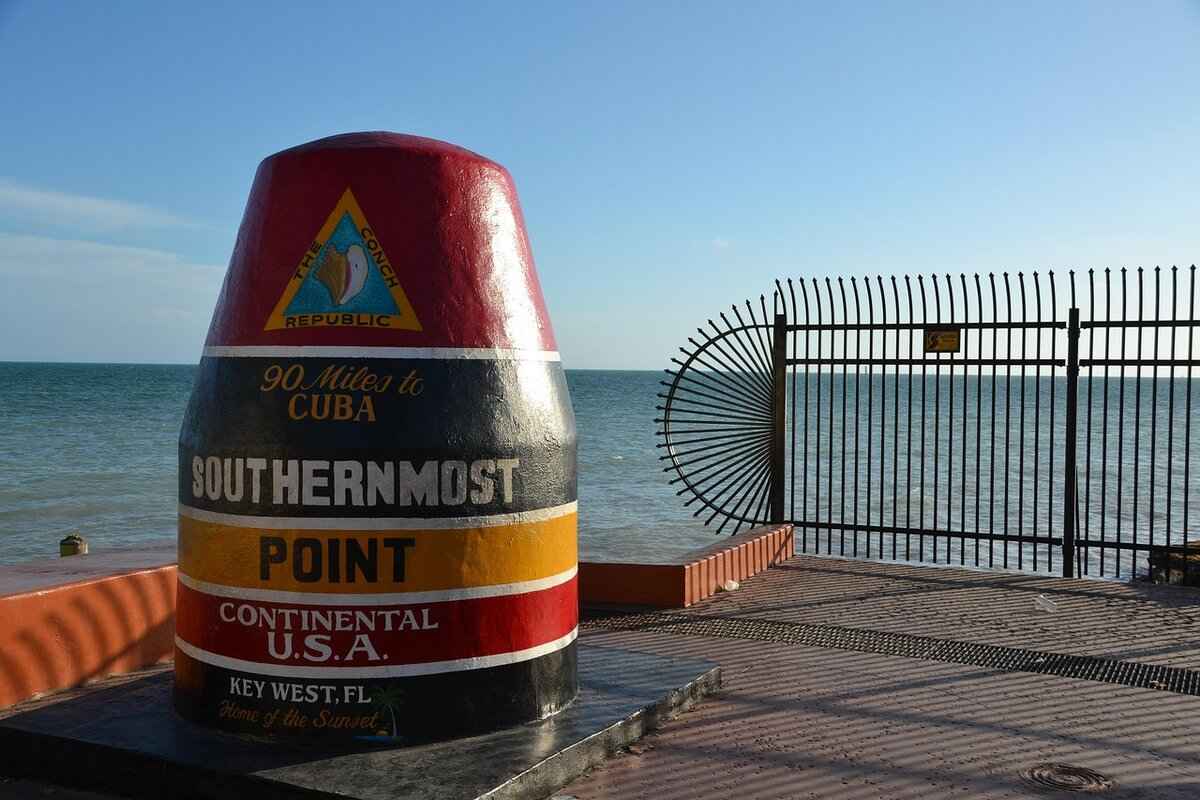This article delves into the crucial position of the Governor in West Bengal, examining their responsibilities, powers, and the background of the current officeholder, shedding light on their influence within the state’s political landscape.
The Role of the Governor in West Bengal
The Governor acts as the constitutional head of the state, representing the President of India. Their role encompasses a variety of responsibilities, ranging from legislative duties to the oversight of state administration. The Governor ensures that the state government operates within the framework of the Constitution and upholds the law.
Current Governor of West Bengal
As of now, the Governor of West Bengal is [Current Governor’s Name]. This section provides insights into their background, political affiliations, and tenure in office, highlighting their contributions to the state. The Governor’s actions can significantly influence the political dynamics of West Bengal.
Background and Education
Understanding the Governor’s educational qualifications and professional journey is essential for contextualizing their approach to governance and policy-making in West Bengal. A well-rounded background can enhance their effectiveness in addressing state issues.
Political Career
The political journey of the Governor is noteworthy, including previous roles held, party affiliations, and significant events that have shaped their career. These experiences inform their current governance style and priorities.
Influence on State Politics
The Governor’s decisions and actions have a profound impact on West Bengal’s political landscape. Their relationship with the Chief Minister and other political leaders is crucial in maintaining a balance of power and ensuring effective governance.
Constitutional Powers of the Governor
The Governor wields several constitutional powers, including legislative, executive, and judicial authority. Understanding these powers is vital for grasping their implications for governance in West Bengal.
Legislative Functions of the Governor
The Governor plays an integral role in the legislative process, which includes summoning and proroguing sessions of the Assembly, as well as granting assent to bills. Their involvement ensures that the legislative framework aligns with the state’s needs.
Assent to Bills
The process through which the Governor reviews and approves legislation passed by the West Bengal Assembly is critical. Their decisions can significantly shape state policies and governance.
Role in State Budget
The Governor’s role in the state budget process is substantial. This section discusses how the Governor influences financial planning and resource allocation, impacting the overall development of West Bengal.
Executive Powers of the Governor
The Governor exercises various executive powers, including the appointment of the Chief Minister and other ministers, which are essential for effective state governance.
Appointment of Key Officials
Highlighting the Governor’s role in appointing key officials, such as the Advocate General and the State Election Commissioner, underscores the importance of these appointments in maintaining a functional administration.
Emergency Powers
The Governor possesses specific emergency powers that can be invoked under certain circumstances. This section details these powers and their potential impact on state governance.
Conclusion: The Significance of the Governor’s Role
The Governor of West Bengal plays a pivotal role in maintaining the balance of power within the state’s political framework. Understanding this role is essential for grasping the complexities of state governance and the dynamics of political interactions.

The Role of the Governor in West Bengal
The role of the Governor in West Bengal is a significant aspect of the state’s governance structure. As the constitutional head of the state, the Governor represents the President of India and carries out a multitude of responsibilities that are crucial for maintaining the democratic framework within the state.
One of the primary duties of the Governor is to act as a link between the central government and the state administration. This involves not just ceremonial functions but also active participation in legislative processes. The Governor has the authority to summon and prorogue the sessions of the West Bengal Legislative Assembly, which is vital for the smooth functioning of the state’s legislative business.
Moreover, the Governor plays an essential role in the legislative process by giving assent to bills passed by the Assembly. This power is pivotal as it can influence the legislative agenda and priorities of the state government. If the Governor chooses to withhold assent or return a bill for reconsideration, it can lead to significant political implications and discussions within the assembly.
In addition to legislative functions, the Governor also oversees the state’s administration. This includes appointing the Chief Minister and other ministers, who are responsible for the executive functions of the state. The Governor’s role in these appointments is crucial, as it ensures that the government is formed by the party or coalition that has the majority in the Assembly.
Furthermore, the Governor possesses certain emergency powers that can be invoked under specific circumstances, such as a breakdown of constitutional machinery in the state. This authority allows the Governor to act decisively to maintain law and order and ensure governance during crises.
In conclusion, the Governor of West Bengal holds a multifaceted role that is not only ceremonial but also deeply integrated into the legislative and executive functions of the state. Understanding the extent of the Governor’s powers and responsibilities is essential for comprehending the complexities of governance in West Bengal.

Current Governor of West Bengal
As of now, the Governor of West Bengal is [Current Governor’s Name]. This esteemed position is not just a ceremonial role; it carries significant responsibilities and influence within the state’s political framework. The Governor acts as the constitutional head of the state, representing the President of India, and plays a crucial role in maintaining the balance of power in West Bengal.
Background and Political Affiliations
[Current Governor’s Name] has a rich background that includes extensive experience in public service and governance. With a degree in [Relevant Field] from [University Name], they have demonstrated a commitment to public affairs and civic engagement throughout their career. Before assuming the governorship, they were affiliated with [Political Party], where they held various important positions that shaped their political outlook and approach to governance.
Tenure in Office
Since taking office on [Date], the Governor has focused on several key issues affecting West Bengal, including [Key Issues]. Their administration has emphasized [Specific Policies or Initiatives], which aim to enhance the welfare of the state’s residents. The Governor’s proactive approach has been evident in their engagement with various stakeholders, including the Chief Minister and local government officials.
Contributions to the State
- Legislative Initiatives: The Governor has played a vital role in facilitating legislative discussions, ensuring that important bills are addressed promptly.
- Public Engagement: They have initiated various outreach programs to connect with citizens and understand their needs better.
- Support for Development Projects: The Governor has endorsed numerous development projects aimed at improving infrastructure and public services in West Bengal.
In conclusion, the role of the Governor in West Bengal is pivotal, shaping the state’s political landscape and influencing its trajectory. Understanding their contributions provides valuable insights into the governance of West Bengal and the dynamic relationship between the officeholder and the state’s administration.
Background and Education
Understanding the educational qualifications and professional background of the Governor of West Bengal is essential for grasping their approach to governance and policy-making. The Governor’s academic journey often reflects their analytical capabilities and leadership qualities, which are crucial in navigating the complexities of state administration.
The current Governor, [Current Governor’s Name], holds a degree in [Degree] from [University]. This academic foundation has equipped them with a robust understanding of governance, law, and public policy. Their education is complemented by a wealth of experience in various professional spheres, including [Relevant Fields]. This diverse background enables the Governor to approach issues with a multifaceted perspective.
Prior to assuming office, the Governor served in several significant roles, including [Previous Positions]. These positions not only honed their administrative skills but also provided them with insights into the workings of both state and national politics. Such experiences are invaluable in the role of Governor, where one must often mediate between different political factions and advocate for the state’s interests at the national level.
The Governor’s professional journey also includes involvement in [Relevant Organizations or Initiatives], demonstrating a commitment to public service and community development. This dedication is reflected in their policy priorities, which often focus on education, health, and economic growth.
In summary, the Governor’s educational and professional background plays a pivotal role in shaping their governance style. By leveraging their qualifications and experiences, they aim to foster a collaborative environment that promotes effective policy-making and addresses the diverse needs of the people of West Bengal.
Political Career
The political journey of the Governor of West Bengal has been marked by a series of significant roles and transformations that reflect their evolving influence within the state’s political framework. This section delves into the Governor’s previous roles, party affiliations, and the key political events that have shaped their career.
The Governor began their political career in a prominent party, where they initially served in various capacities that laid the groundwork for their future leadership roles. Through dedication and strategic vision, they climbed the ranks, eventually taking on responsibilities that showcased their governance capabilities. Their political party affiliation has shifted over the years, which has allowed them to engage with a broader spectrum of political ideologies and policies.
- Early Political Roles: The Governor’s initial foray into politics involved serving as a member of the state assembly, where they focused on key issues such as education and infrastructure development.
- Ministerial Positions: Following their success in the assembly, they were appointed to various ministerial positions, including Minister of Finance and Minister of Home Affairs, where they implemented significant reforms.
- Party Leadership: As a leader within their party, the Governor played a pivotal role in strategizing electoral campaigns that resonated with the electorate, leading to notable victories.
Throughout their career, the Governor has faced pivotal moments that tested their political acumen. One such event was the statewide protests over social policies, which required delicate negotiation skills to maintain peace and order. Their ability to navigate these challenges has solidified their reputation as a seasoned politician.
In conclusion, the Governor’s political career is characterized by a blend of strategic roles, party dynamics, and significant political events. This journey not only highlights their individual contributions but also reflects the broader political landscape of West Bengal.
Influence on State Politics
The influence of the Governor on the political landscape of West Bengal is a multifaceted issue that warrants careful examination. As the constitutional head of the state, the Governor’s decisions and actions play a critical role in shaping not only the governance of West Bengal but also its political dynamics. This article delves into the intricate relationships between the Governor, the Chief Minister, and other political leaders, highlighting the implications of these interactions.
One of the most significant aspects of the Governor’s influence is their relationship with the Chief Minister. This relationship is often characterized by a delicate balance of power, where the Governor must navigate the complexities of state politics while ensuring adherence to constitutional mandates. For instance, the Governor has the authority to summon and prorogue the state assembly, a power that can be wielded to either facilitate or hinder legislative processes. Such actions can lead to heightened tensions between the Governor and the Chief Minister, particularly if there are disagreements over policy directions or governance.
Moreover, the Governor’s role extends beyond mere ceremonial duties; they are also involved in critical decision-making processes. The appointment of key officials, such as the Chief Secretary and other administrative heads, often reflects the Governor’s political leanings and can significantly impact the state’s governance. This can lead to shifts in political alliances and influence the overall stability of the ruling coalition.
Additionally, the Governor’s interactions with other political leaders, including opposition parties, can further complicate the political landscape. By engaging with various political factions, the Governor can act as a mediator or a catalyst for dialogue, which may either ease tensions or exacerbate conflicts. The ability of the Governor to maintain impartiality while navigating these relationships is crucial for fostering a stable political environment in West Bengal.
In conclusion, the Governor’s influence on state politics is profound and multifaceted. Their actions and decisions not only shape the immediate political landscape but also have long-term implications for governance and political relationships in West Bengal. Understanding this influence is essential for grasping the complexities of the state’s political framework.
Constitutional Powers of the Governor
The Governor of West Bengal holds a significant position within the state’s governance structure, endowed with various constitutional powers that facilitate effective administration. This section delves into the legislative, executive, and judicial authority vested in the Governor, shedding light on their implications for governance.
Firstly, the legislative powers of the Governor are crucial in shaping the state’s laws. The Governor has the authority to summon and prorogue the sessions of the West Bengal Legislative Assembly. This power not only ensures the smooth functioning of the legislative process but also allows the Governor to play a pivotal role in the timing and agenda of legislative discussions. Furthermore, the Governor’s assent is required for any bill passed by the Assembly to become law, which emphasizes their role as a critical checkpoint in the legislative process.
In addition to legislative functions, the Governor also possesses substantial executive powers. They are responsible for appointing the Chief Minister and other ministers, which is essential for the formation of the state government. These appointments are not merely ceremonial; they have far-reaching implications on the state’s political landscape. The Governor also appoints key officials, such as the Advocate General and the State Election Commissioner, whose roles are vital in maintaining the rule of law and ensuring fair electoral processes.
Moreover, the Governor has certain judicial powers that allow them to grant pardons and reprieves under specific circumstances, showcasing their role in the justice system. This power can significantly affect individual lives and uphold justice within the state.
In conclusion, the constitutional powers of the Governor of West Bengal are multifaceted, encompassing legislative, executive, and judicial functions. Understanding these powers is essential for appreciating the complexities of state governance and the balance of power within the political framework.

Legislative Functions of the Governor
The Governor of West Bengal holds a pivotal position in the legislative framework of the state, acting as the constitutional head who ensures that the legislative processes are carried out smoothly. This role is not only ceremonial but also carries significant responsibilities that directly affect the governance of West Bengal.
One of the primary functions of the Governor is to summon and prorogue sessions of the West Bengal Legislative Assembly. This authority allows the Governor to dictate the timing of legislative meetings, which is crucial for maintaining order and efficiency within the assembly. By summoning the assembly, the Governor enables the discussion of important issues, while proroguing sessions can help in managing the legislative calendar effectively.
Furthermore, the Governor’s role extends to giving assent to bills passed by the assembly. This process is essential for transforming proposed legislation into law. The Governor has the authority to:
- Approve the bill, allowing it to become law.
- Withhold assent, effectively vetoing the bill.
- Return the bill for reconsideration, particularly if it raises constitutional concerns.
Each of these actions carries significant implications for the legislative process and reflects the Governor’s influence on state governance. The decision to grant or withhold assent can shape policy outcomes and impact the political landscape of West Bengal.
Moreover, the Governor’s involvement in the legislative process is not limited to mere approval of bills. They also play a crucial role in the state budget process, where their recommendations can guide financial planning and resource allocation. This involvement ensures that the budget reflects the needs and priorities of the state, further solidifying the Governor’s integral role in governance.
In conclusion, the legislative functions of the Governor are fundamental to the democratic process in West Bengal. By summoning sessions, giving assent to bills, and influencing the state budget, the Governor not only upholds constitutional mandates but also actively participates in shaping the state’s legislative agenda.
Assent to Bills
The process through which the Governor of West Bengal reviews and approves legislation passed by the West Bengal Assembly is a significant aspect of the state’s governance. The Governor’s role in this context is not merely ceremonial; it carries substantial implications for the legislative framework and political landscape of the state.
Once a bill is passed by the Assembly, it is sent to the Governor for approval. The Governor has several options upon receiving the bill:
- Give Assent: The Governor can approve the bill, allowing it to become law.
- Withhold Assent: The Governor may choose not to sign the bill, effectively vetoing it.
- Return for Reconsideration: The Governor can return the bill to the Assembly with a request for reconsideration, particularly if there are concerns about its implications or constitutionality.
This decision-making process is crucial as it reflects the Governor’s perspective on legislative matters and their alignment with the broader interests of the state. For instance, if the Governor withholds assent, it may signal a disagreement with the ruling party’s agenda, potentially leading to political tensions.
Furthermore, the implications of these decisions extend beyond the immediate legislative context. The Governor’s actions can influence public policy, shape political discourse, and affect the relationship between the state government and the central government. By exercising this power judiciously, the Governor can help maintain a balance between different political entities and ensure that the laws enacted serve the public interest.
In conclusion, the assent process is a vital component of the legislative framework in West Bengal. It underscores the Governor’s role as a key player in the state’s governance, impacting not only the laws that govern the people but also the political dynamics within the Assembly.
Role in State Budget
The Role of the Governor in the State Budget
The Governor’s involvement in the state budget process is crucial for ensuring effective financial planning and resource allocation in West Bengal. As the constitutional head of the state, the Governor plays a pivotal role in overseeing the budgetary process, which significantly impacts the state’s economic health and development.
One of the primary responsibilities of the Governor is to present the budget before the state legislature. This act not only marks the beginning of the budget session but also sets the tone for financial discussions. The Governor works closely with the Chief Minister and the finance department to ensure that the budget aligns with the state’s priorities and developmental goals.
Moreover, the Governor has the authority to recommend financial legislation to the assembly. This power allows the Governor to influence the allocation of funds for various sectors, including education, healthcare, and infrastructure. By advocating for specific initiatives, the Governor can direct resources to areas that require urgent attention, thereby shaping the state’s development trajectory.
Another significant aspect of the Governor’s role is the ability to approve or veto budget proposals. This authority serves as a check on the legislative process, ensuring that financial decisions are made in the best interest of the state. The Governor’s veto power can prevent the passage of budgetary provisions that may be deemed unwise or detrimental, reflecting a commitment to fiscal responsibility.
In addition, the Governor engages in discussions with various stakeholders, including local governments and community organizations, to gather input on budgetary needs. This engagement fosters a more inclusive approach to financial planning and enhances transparency in the budget process.
In conclusion, the Governor’s influence on the state budget process is profound, affecting financial planning and resource allocation. By presenting the budget, recommending legislation, and exercising veto power, the Governor plays a vital role in shaping West Bengal’s economic landscape.

Executive Powers of the Governor
The Governor of West Bengal holds a significant position within the state’s governance framework, particularly when it comes to the exercise of executive powers. These powers are essential for ensuring the smooth functioning of the state government and maintaining a balance of authority. Among the most crucial responsibilities of the Governor is the appointment of the Chief Minister and other ministers, which directly influences the state’s political landscape.
Upon the formation of a new government, the Governor plays a pivotal role by formally appointing the Chief Minister, who is typically the leader of the party or coalition that has secured a majority in the Legislative Assembly. This appointment is not merely ceremonial; it sets the stage for the Chief Minister to form a cabinet and initiate governance. The Governor’s decision in this regard can have far-reaching implications for the state’s policies and direction.
Moreover, the Governor is empowered to appoint other ministers upon the Chief Minister’s advice, thereby shaping the executive wing of the state. This process is crucial as it determines the composition of the cabinet, which is responsible for executing laws and policies. The effectiveness of governance often hinges on the Governor’s ability to facilitate a cohesive and competent team of ministers.
In addition to these appointments, the Governor also possesses the authority to dismiss ministers from their positions if deemed necessary. This power serves as a check on the executive branch, ensuring accountability and adherence to constitutional mandates. The Governor’s role in this context underscores the importance of maintaining a functional and responsive government.
In summary, the executive powers of the Governor, particularly the appointment of the Chief Minister and other ministers, are fundamental to the governance of West Bengal. These powers not only shape the state’s political dynamics but also ensure that the government operates effectively in serving the interests of its citizens.
Appointment of Key Officials
The Governor of West Bengal holds a significant constitutional role, particularly when it comes to the . This responsibility is not merely ceremonial; it carries substantial implications for the governance and legal framework of the state.
Among the most important appointments made by the Governor are the Advocate General and the State Election Commissioner. These positions are crucial for ensuring that the state’s legal and electoral processes function smoothly and fairly.
- Advocate General: The Advocate General acts as the chief legal advisor to the state government. Appointed by the Governor, this official represents the state in legal matters before the High Court and other judicial forums. The Advocate General’s role is vital in interpreting laws and ensuring that the government operates within the legal framework.
- State Election Commissioner: This role is pivotal for maintaining the integrity of the electoral process in West Bengal. The State Election Commissioner oversees the conduct of elections at the local level, ensuring free and fair elections. The Governor’s appointment of this official is crucial for upholding democratic values.
The importance of these appointments cannot be overstated. The individuals chosen for these roles often influence significant legal and electoral outcomes, affecting the state’s political landscape. For instance, a well-respected Advocate General can provide sound legal advice that shapes policy, while an impartial State Election Commissioner can enhance public trust in the electoral process.
Moreover, these appointments reflect the Governor’s judgment and discretion, which can have far-reaching consequences. By selecting individuals who are not only qualified but also possess a deep understanding of the state’s unique challenges, the Governor can foster effective governance.
In conclusion, the Governor’s role in appointing key officials like the Advocate General and the State Election Commissioner is a critical aspect of maintaining the rule of law and democratic integrity in West Bengal. These appointments are instrumental in shaping the state’s legal and political framework, underscoring the Governor’s influence in the state’s governance.
Emergency Powers
Emergency Powers of the Governor
The Governor of West Bengal holds a unique position within the state’s governance framework, particularly when it comes to . These powers are not just ceremonial; they are critical tools that can significantly influence the political landscape during times of crisis. This section delves into the circumstances under which these powers can be invoked and their implications for the state’s governance.
In situations where there is a breakdown of constitutional machinery, the Governor is empowered to take decisive action. This typically occurs under Article 356 of the Indian Constitution, allowing the Governor to assume control of the state administration. Such a scenario might arise in cases of:
- Political Instability: When the ruling party loses its majority or there are conflicts among political factions.
- Natural Disasters: In the event of calamities where swift governmental response is necessary.
- Law and Order Issues: If there is a significant threat to public safety or communal harmony.
When invoking these emergency powers, the Governor can:
- Dismiss the State Government: This action can lead to the imposition of President’s Rule, where the state is governed directly by the central government.
- Issue Ordinances: The Governor can enact laws without the assembly’s approval, addressing urgent matters swiftly.
- Call for Legislative Sessions: The Governor can summon the assembly to discuss pressing issues, facilitating immediate legislative action.
While these powers are intended to stabilize governance during crises, they also raise concerns about potential misuse. The political ramifications of such actions can lead to significant changes in the state’s governance and public trust. Therefore, it is crucial for the Governor to exercise these powers judiciously, ensuring that the democratic framework is upheld.
In conclusion, the emergency powers of the Governor are a vital aspect of state governance in West Bengal. Understanding their scope and limitations is essential for grasping the complexities of political dynamics in the state.

Conclusion: The Significance of the Governor’s Role
The role of the Governor of West Bengal is not merely ceremonial; it is a critical component of the state’s political structure. The Governor acts as the constitutional head, representing the President of India while ensuring that the state’s governance aligns with the constitutional framework. This position carries significant responsibilities that directly influence the political dynamics of West Bengal.
One of the primary duties of the Governor is to oversee the legislative process. The Governor has the authority to summon and prorogue the state assembly sessions, which are essential for the legislative functioning of West Bengal. Furthermore, the Governor’s assent to bills passed by the assembly is a crucial step in the law-making process. Without this approval, legislative proposals cannot become law, highlighting the Governor’s power in shaping state legislation.
Additionally, the Governor plays a vital role in the executive branch by appointing the Chief Minister and other ministers. This appointment power is fundamental to the formation of the state government, as it determines the leadership that will execute policies and administer public services. The Governor also has the responsibility to appoint key officials, such as the Advocate General and the State Election Commissioner, ensuring that the state’s various functions are carried out effectively.
In times of political instability or crises, the Governor can exercise emergency powers, which can significantly impact governance. Such powers allow the Governor to take decisive actions that may include dissolving the assembly or imposing President’s Rule under certain conditions. This ability to intervene emphasizes the Governor’s role as a stabilizing force in the state’s political landscape.
In conclusion, understanding the role of the Governor of West Bengal is essential for grasping the complexities of state governance. The Governor’s influence extends beyond mere formality, affecting legislative processes, executive appointments, and the overall balance of political power within the state. This multifaceted role is pivotal in maintaining a stable and functioning government in West Bengal.
Frequently Asked Questions
- What is the primary role of the Governor of West Bengal?
The Governor serves as the constitutional head of the state, representing the President of India. They oversee the state’s administration and have various legislative and executive responsibilities.
- Who is the current Governor of West Bengal?
The current Governor of West Bengal is [Current Governor’s Name]. They have a significant influence on the state’s political landscape and governance.
- How does the Governor influence the legislative process?
The Governor plays a crucial role in the legislative process by summoning and proroguing Assembly sessions and giving assent to bills passed by the legislature.
- What are the Governor’s emergency powers?
The Governor possesses emergency powers that can be invoked under specific circumstances, allowing them to take decisive actions to maintain order and governance in the state.
- How does the Governor impact the state budget?
The Governor’s involvement in the state budget process is significant, as they influence financial planning and resource allocation, ensuring that the state’s needs are met.















